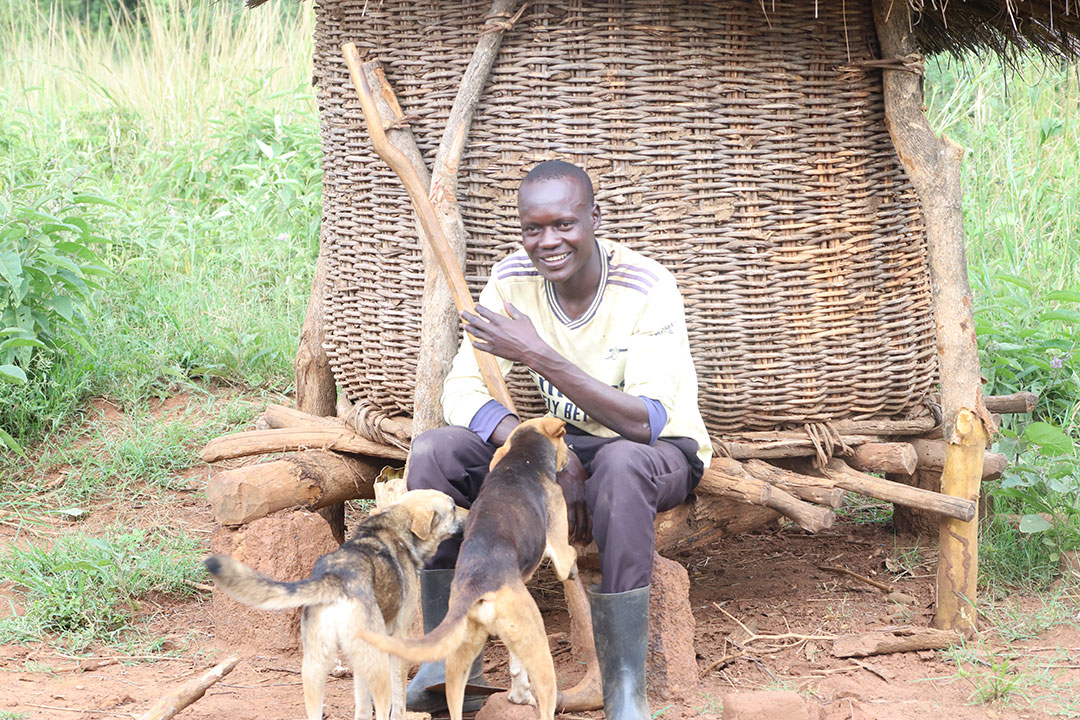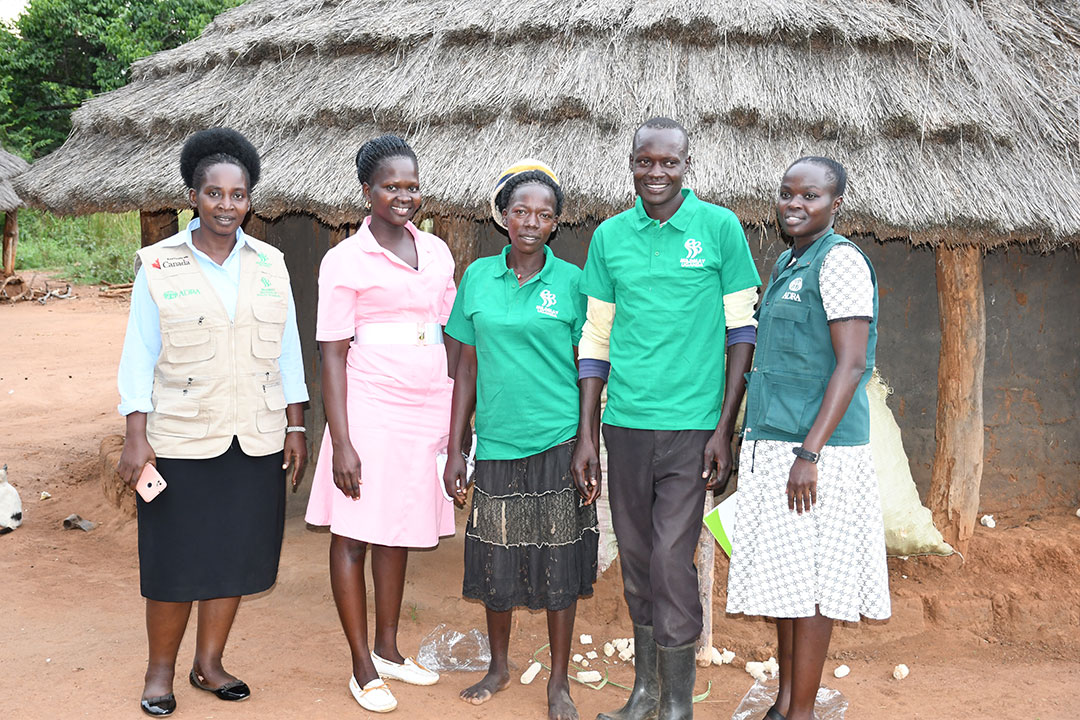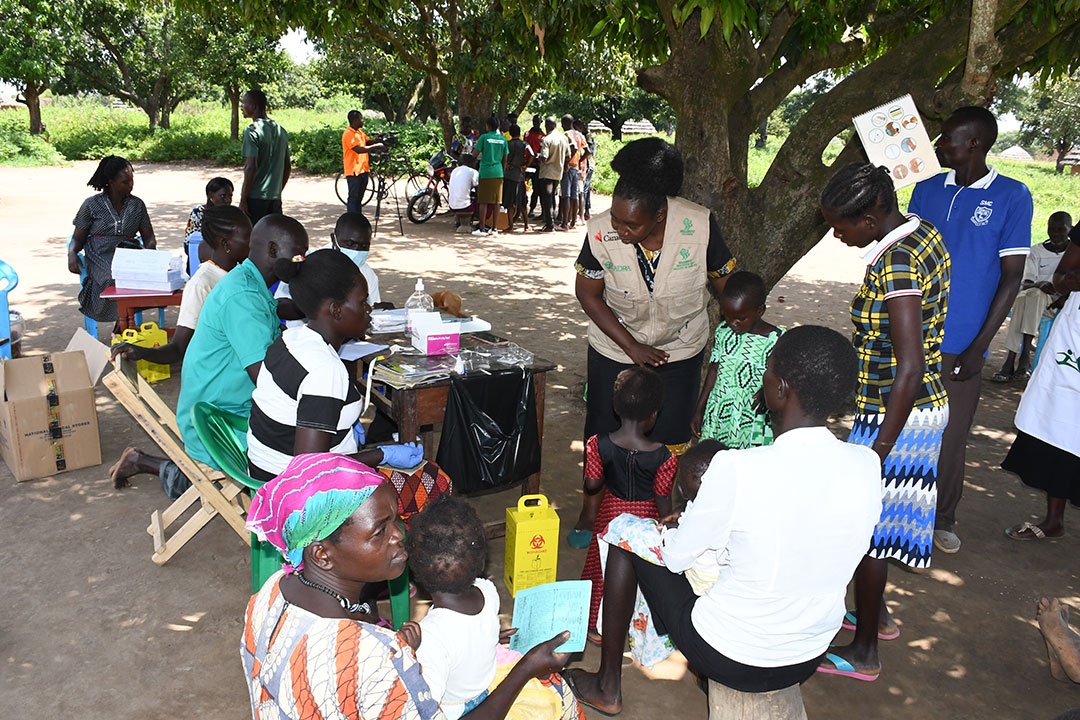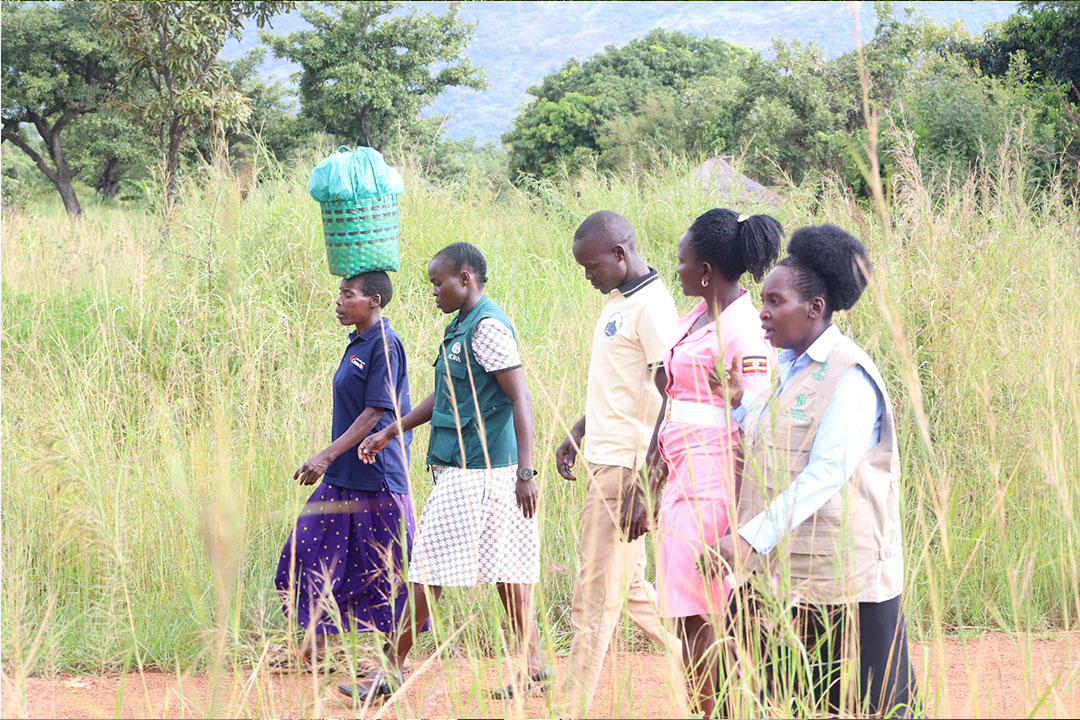- Give & Donate
- Reports
- Mildmay Hospital
- Mildmay Institute
- Mildmay Research

Growing and living below the hills of Ogili, Kumele Wicere Village, 31-year-old, Vincent Okwera Lapi beams with joy and excitement as he welcomes us to his home. It’s this joy and excitement that defines Vincent’s passion of saving lives more especially within his community - a call that has become a realty through working as a VHT at Omiya Anyima Health Center III.
Vincent lives with his wife and two children. Living in an extended family system as per the Acholi culture (his tribe), the family lives in beautifully built grass thatched houses. They are subsistence farmers, growing traditional crops and selling them to the nearby market. Growing up with six siblings, Vincent is the eldest son. After completing Ordinary level of education, he dropped out of school to allow his sister to continue with education due to low income at home.
It was during one of the village mobilisation meetings that Vincent was identified and recommended to serve his community as a Village Health Team (VHT). This was a DREAM come true for the young and enthusiastic leader from Kumele Wicere Village. “I was excited at the opportunity to serve my people. I had always wanted to provide information more especially on health to my people so that we can change our lifestyle,” he happily explains.
Through the Uniting TOwards Gender Equality for enjoyment of women’s and girls’ Total HEalth and Rights (TOGETHER) Project, implemented by Mildmay Uganda in partnership with districts of Kitgum, Agago, Pader and Lamwo for a period of 6 years; and funded by ADDRA Uganda, Vincent was equipped with Basic skills in counselling, identifying people that need health care services in the village and linking them to the facility. The Training empowered him with knowledge and skills to identify and linking clients that have suffered gender-based violence to the facility for support, creating awareness on gender-based violence in the community, sensitising community members on reproductive health services - a crucial area for the community.

Flavia Adiao, Capacity Building Trainer, The TOGETHER Project, reveals that empowering VHTs like Vincent and linking them with targeted health facilities is part of the project model aimed at increasing community access to health care services more especially in the rural areas of the project. “The project trains VHTs and selected strategic Health Care providers in a broad range of skills sets. These include Family planning, sexual health, maternal health, counselling, Screening, and management of gender-based violence, customer care, the law and sexual gender-based violence and sexual violence against children and referral pathway. This creates increased access to services by the community,” she explains.
To Vincent, his role has increased access to the health center by his community members. On average, he supports 5-10 people to access services at Omiya Anyima Health Center III, located 8 kilometres from his village. Testimonies of his great work have made him a go to person in his community with a title dactar (a local name for Doctor by the community). Christopher and his wife Anne are among the many families that are a testimony to Vincents great impact. After, losing two babies while delivering at home, Vincent reached out to the couple and educated them on the benefits of delivering at the health facility - a norm that they would later take advantage of in their next pregnancy. Today, the couple is excited to have delivered triplets at the facility safely – a milestone they attribute to Vincent’s efforts.
Ochan Kennedy, Senior Clinical Officer and In-charge, Omiya Anyima Health Center III, applauds the great impact that the TOGETHER Project has created at his facility. Through capacity building to the health workers that have participated in Gender based Training sessions, community dialogue meetings with community opinion leaders, facility mentorship sessions with the Police, other duty bearers, and young people dialogue meetings, the facility has increased access to services to over 23603 people in the community of Omiya Anyinya and beyond.
“Our reach has increased from identifying and supporting gender-based violence cases from 6 to 20 in a month. This is attributed to the skills and knowledge that we have gained through the support of TOGETHER Project,” he happily reveals. The project has also supported us with establishing a young people friendly space that has significantly increased access to the health facility by the Young People.

To date, The TOGETHER Project has trained over 102 community resource persons, 59 health care providers in nine (9) sub-counties. The project has created impact in the four districts of Kitgum, Lamwo, Pader and Agago, in Northern Uganda. The 2023 Uganda Report on Gender Based Violence indicates that over 45% of the communities in the four districts face gender-based violence characterised by domestic rape, poor household income, excessive drinking of alcohol, drugs, and high unemployment among men. The area is also prone to cattle raids by the neighbouring Karamojong community.

The project empowers individuals and communities to advocate for better sexual and reproductive health services and policies and educates young people to engage with their communities and their governments to make their voices heard. The project strengthens local health systems, working closely with local authorities and health facilities to improve health worker capacity and service coverage, including for family planning and sexual gender-based violence (SGBV)-related prevention and care.